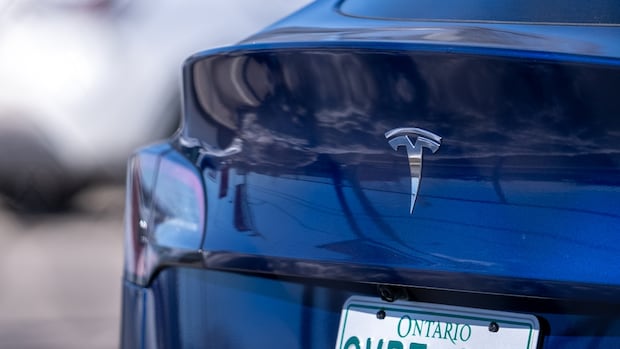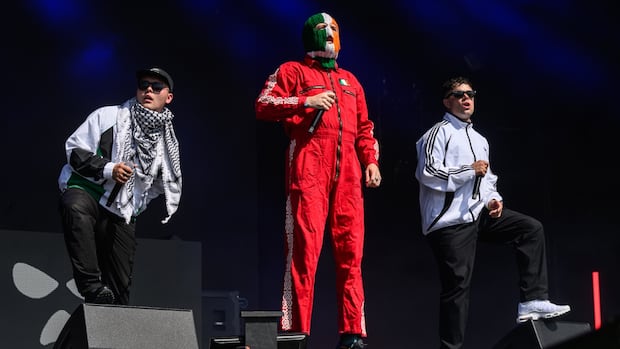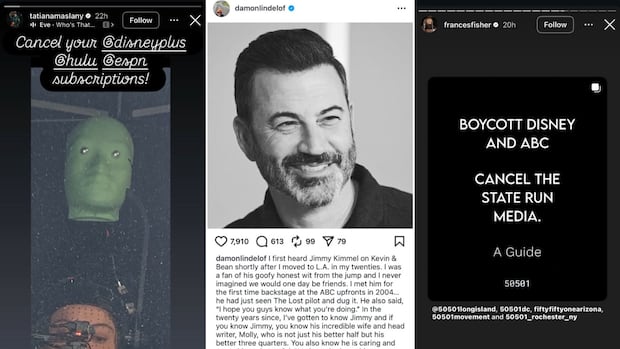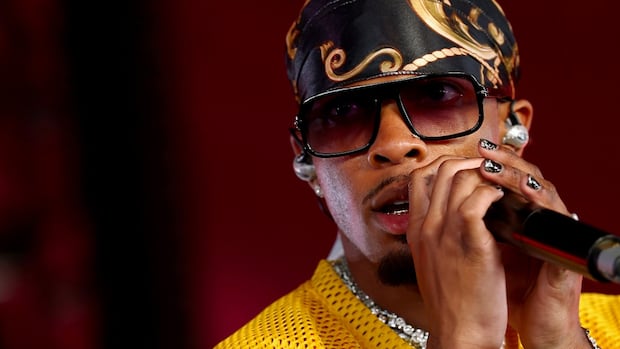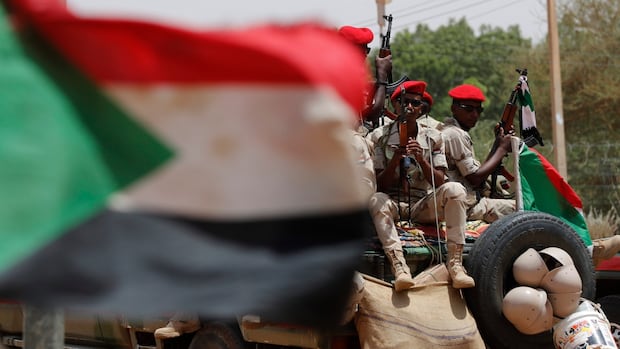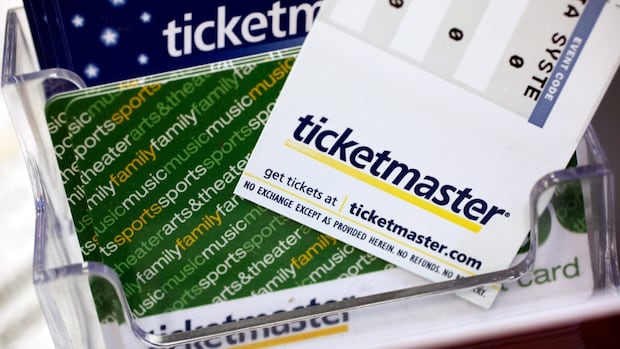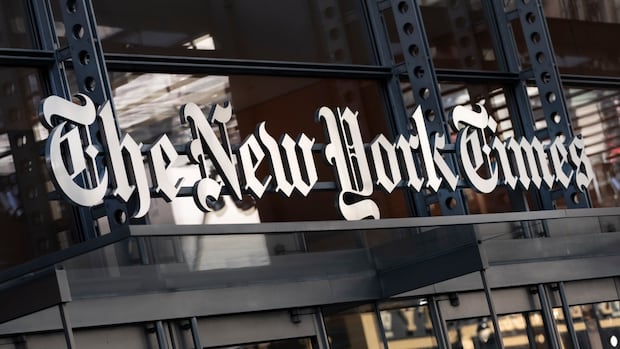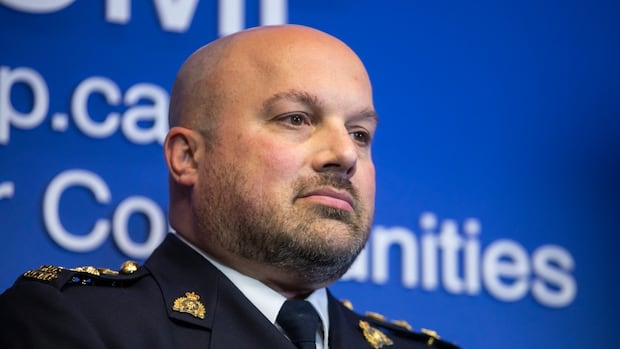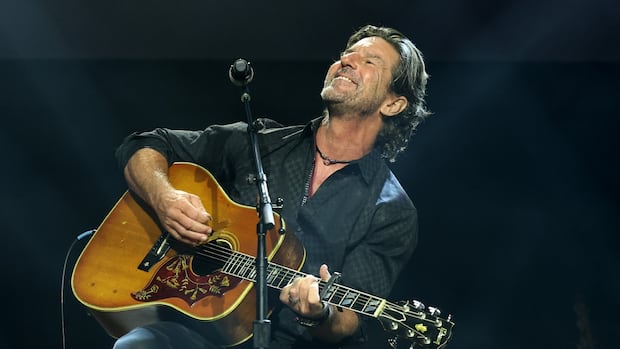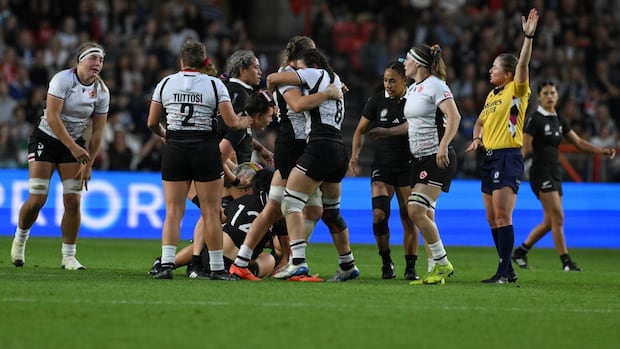The Irish hip-hop trio Kneecap has been banned from entering Canada over what the federal government says is their "open endorsement of terrorist organizations."
"Kneecap has engaged in actions and have made statements that are contrary to Canadian values and laws that have caused deep alarm to our government," Vince Gasparro, parliamentary secretary for combating crime, said in a video posted on social media.
"The group have amplified political violence and publicly displayed support for terrorist organizations such as Hezbollah and Hamas," he said. The band has denied supporting the militant groups.
In announcing the group's ineligibility, Gasparro explained that his government would not allow Canada to become a platform for extremism or political violence
Kneecap had been scheduled to perform in Toronto and Vancouver next month. Last month, the group announced it was cancelling 15 shows in the U.S.
Belfast trio known for anarchic energyThe Belfast trio is known for its anarchic energy, satirical lyrics and use of symbolism associated with the Irish republican movement, which seeks to unite Northern Ireland — currently part of the U.K. — with the Republic of Ireland.
The group has faced criticism for lyrics laden with expletives and drug references, and for political statements seeming to glorify militant groups.
One member of the group, Liam Óg Ó Hannaidh, who performs under the name Mo Chara, is facing terrorism charges in the U.K., after allegedly waving a Hezbollah flag on stage at a November 2024 gig in London. He returns to court Sept. 26.
The ban comes on the same day Justice Minister Sean Fraser tabled new legislation that promises to create four Criminal Code offences, including one that would make it a crime to intentionally promote hatred against identifiable groups in public using certain hate- or terrorism-related symbols.
Jewish groups have been asking Ottawa to ban the group since June, along with the English punk-rap duo Bob Vylan, over comments they argue incite antisemitism. Gasparro's video did not mention Bob Vylan.
B'nai Brith Canada, a Jewish advocacy group, welcomed the news Friday, saying the government's decision should set a precedent.
"Kneecap ... has repeatedly glorified violence and extremism — from waving a Hezbollah flag in London to inciting hostile chants at major festivals," the organization said in a press release. "Their incitement is not just a danger to the Jewish community, it is a danger to Canadian values and to all Canadians."
In his video message, Gasparro said the decision to ban Kneecap was taken specifically to protect Canada's Jewish community.
Kneecap pushes backKneecap has accused its critics of trying to silence them because of their support for the Palestinian cause throughout Israel's war in Gaza. They have said they don't support Hezbollah and Hamas, nor do they condone violence.
The band responded to Gasparro in a post on X, saying the allegations he made in the video are "wholly untrue and deeply malicious." They said they would be taking legal action against him.
"We will be relentless in defending ourselves against baseless accusations to silence our opposition to a genocide being committed by Israel."
The post also included a message to their Canadian fans.
"We have played in Canada many times with zero issues and a message of solidarity and love," it read. "We are sorry we cannot be with you next month but we will not be silenced and will always oppose genocide."
The federal government's powers to deny entryThe federal government has the powers under the Immigration and Refugee Protection Act to deny someone entry to to Canada based on a number of reasons, including:
Participating in espionage, attempts to overthrow a government or engaging in violence or terrorism. Committing or having been convicted of war crimes or crimes against humanity Having criminal convictions, or having committed crimes, including for driving while under the influence Being a member of an organized criminal organization Having a medical condition that endangers public health or puts excessive demand on the health-care system. Being unable or unwilling to financially support yourself and your family. Lying on your immigration documents. Having an inadmissible family member.The ministers of public safety or immigration can also deny entry to someone if, in the opinion of the minister, the person seeking entry is a national security or public safety threat.
Immigration lawyer and policy analyst Richard Kurland told CBC News that Indigenous people, permanent residents and Canadian citizens can enter the country by right; all others can be turned away under the law.
Kurland also said that the language the federal government uses to describe categories of inadmissibility are deliberately broad — for example saying someone "committed" an offence without clarifying if that means being charged or convicted — because immigration decisions do not rise to the standard of court rulings.
"So if there is information or evidence to the effect that there's a reasonable suspicion the person will commit a hate crime, that's enough," he added.
Kurland says that because it was a government decision to ban Kneecap from entering Canada, the band can only apply for a judicial review, rather than challenge the decision in court.
A judicial review, however, does not re-examine merits of the person's entry request, but instead looks at whether an error of law was made in refusing them entry.
Kurland says that because ministers have the authority to act on a "reasonable suspicion" and one of the group's members is facing terrorism charges, the case would likely not go very far.


